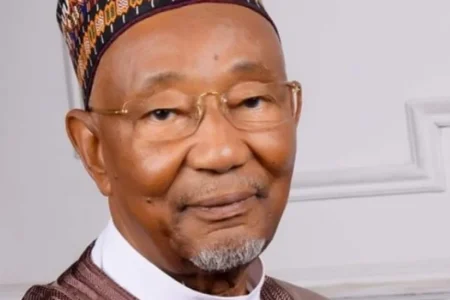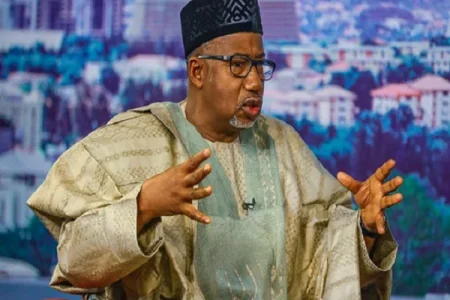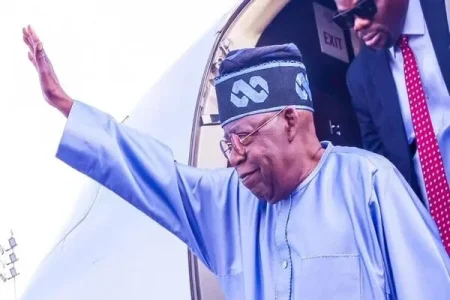Justice Inyang Ekwo of the Federal High Court in Abuja has dismissed Senator Adamu Bulkachuwa's suit seeking to prevent the Independent Corrupt Practices and Other Related Offences Commission (ICPC) and the Department of State Services (DSS) from investigating his comments made during the valedictory session of the 9th National Assembly.

In his judgment, Justice Ekwo ruled that the suit lacked merit and should be dismissed. He argued that as a lawmaker, Bulkachuwa should understand the implications of his statements in the Senate and that legislative immunity does not apply in this case.
The judge emphasized that a cause of action could only arise if a law enforcement agency violated a citizen's fundamental rights during the execution of its statutory duties.
Senator Bulkachuwa had sued several parties, including the Attorney-General of the Federation, the clerk of the National Assembly, the State Security Service, ICPC, and the Nigeria Police Force. He sought to establish that he was protected by parliamentary immunity and freedom of speech and expression, and that no law enforcement agency could question a Senate member without following internal disciplinary procedures.
Justice Ekwo concluded that the remarks made by Bulkachuwa on June 10 were not covered by Section 39(1) of the 1999 Constitution and that the constitution does not grant individuals unrestricted freedom to make any statements they please.

In his judgment, Justice Ekwo ruled that the suit lacked merit and should be dismissed. He argued that as a lawmaker, Bulkachuwa should understand the implications of his statements in the Senate and that legislative immunity does not apply in this case.
The judge emphasized that a cause of action could only arise if a law enforcement agency violated a citizen's fundamental rights during the execution of its statutory duties.
Senator Bulkachuwa had sued several parties, including the Attorney-General of the Federation, the clerk of the National Assembly, the State Security Service, ICPC, and the Nigeria Police Force. He sought to establish that he was protected by parliamentary immunity and freedom of speech and expression, and that no law enforcement agency could question a Senate member without following internal disciplinary procedures.
Justice Ekwo concluded that the remarks made by Bulkachuwa on June 10 were not covered by Section 39(1) of the 1999 Constitution and that the constitution does not grant individuals unrestricted freedom to make any statements they please.




